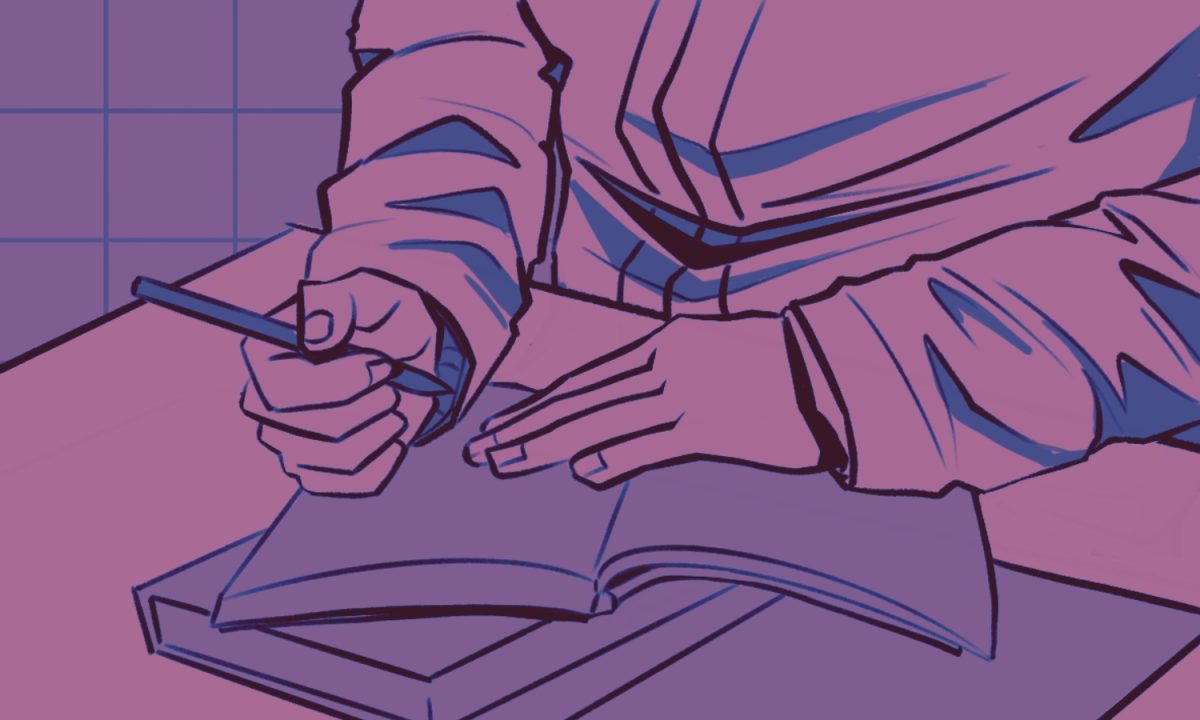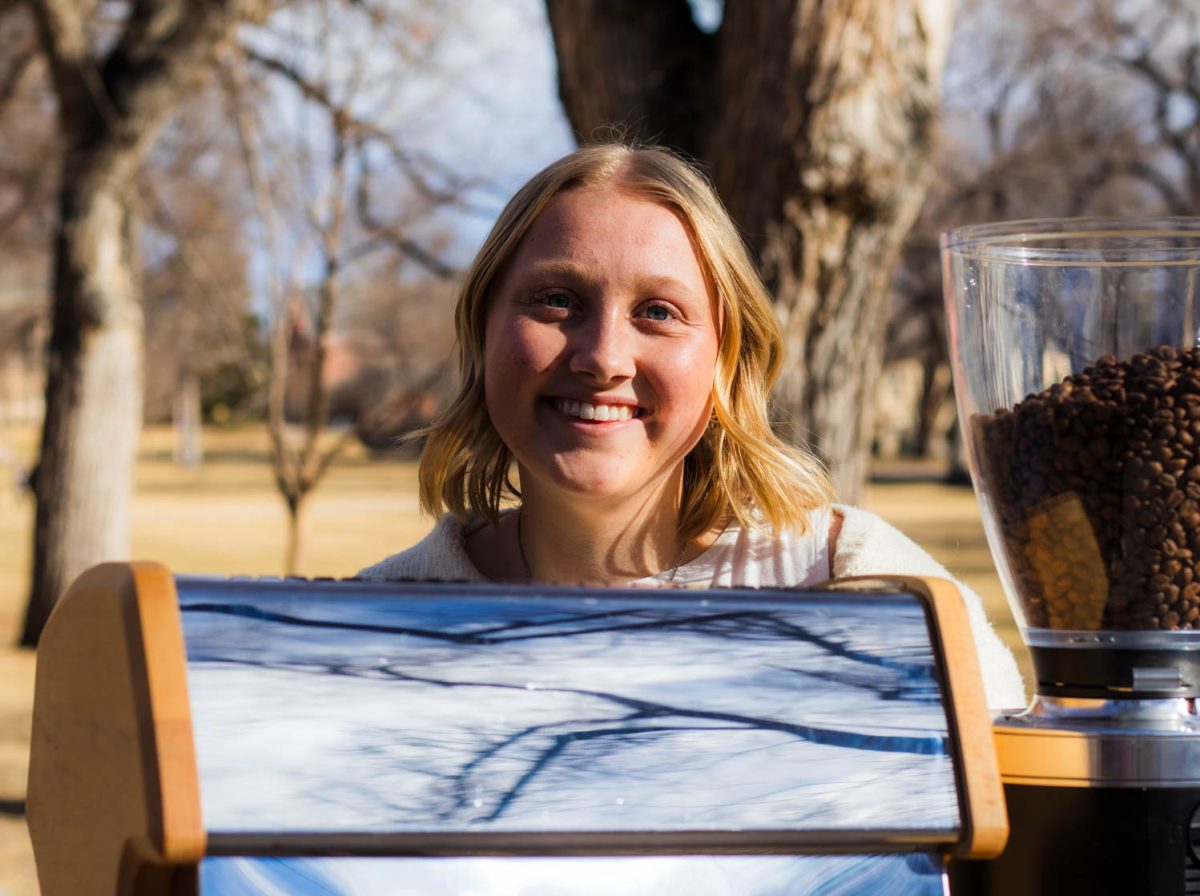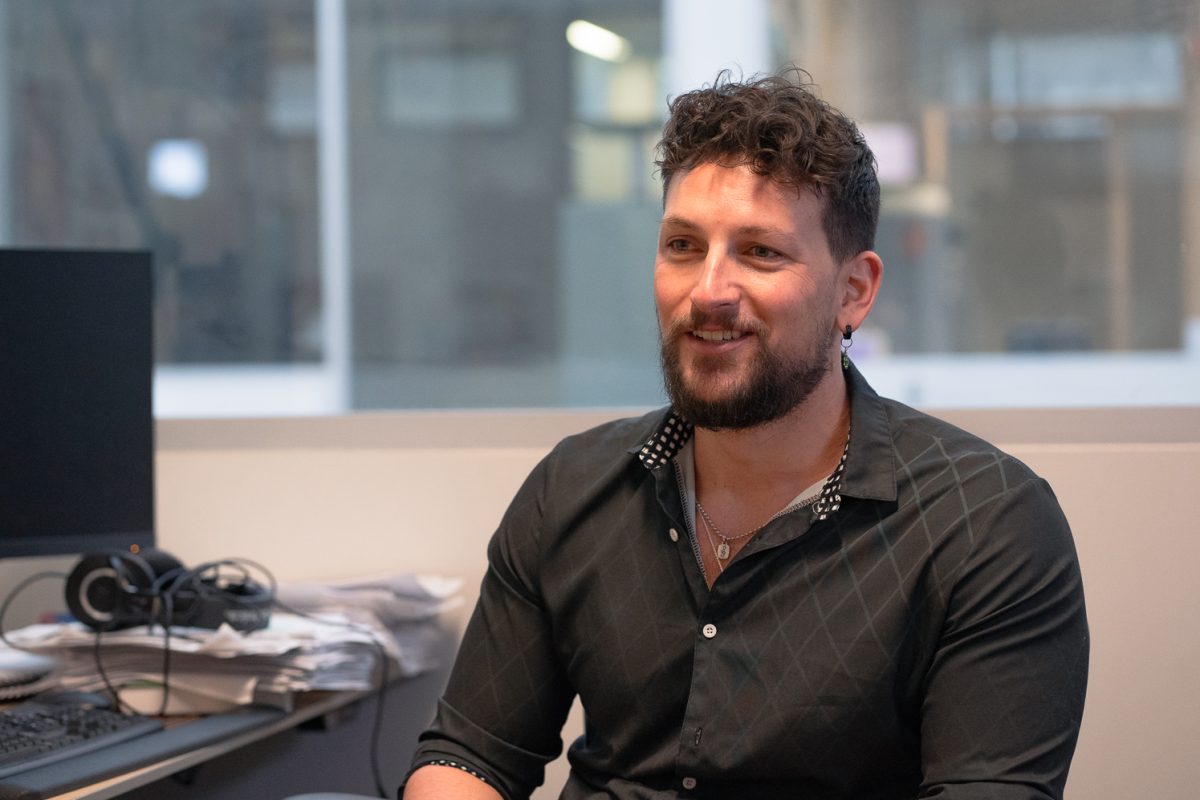The average person will spend 90,000 hours of their lifetime at work. Ninety thousand hours. Ninety thousand spent providing a roof and a meal, 90,000 spent chasing a dream. Ninety thousand working from a cubicle, attending office meetings, researching out in the field or curating a portfolio. How many ballpoint pens would one go through? How many coffee runs, red-eye flights or business dinners does one experience?
Ninety-thousand hours, yet only half of Americans feel fulfilled in their jobs.
A 2023 Pew Research study stated that only 44% of Americans are extremely or very satisfied with their opportunities for training and adopting new skills. Only 34% feel the same way about their salary, and only half say their job is even enjoyable.
For the majority of Americans who aren’t satisfied with their salary and for the half who dislike their jobs, what are those 90,000 hours put toward — a honed passion or a long paycheck? A dichotomy forms between pursuing a career that emotionally satisfies and pursuing a career that financially satisfies. For some, both are attainable. But for many, picking a career means sacrificing one consideration for another in an equally difficult choice.
What makes a meaningful career?
Above all else, careers contribute to the human search for meaning. According to another Pew Research study conducted across 17 countries, a median 25% of adults surveyed said their occupation gave them meaning in life.
Students and faculty at Colorado State University currently search for career meaning while trying to pick between a loved passion and a good salary.
Michael Steger knows this search all too well. Professor of psychology and founder of the Center for Meaning and Purpose at CSU, an organization that promotes psychological well-being, Steger has published multiple journals on meaning and positive psychology. He best defines meaning in life as believing that one’s experiences make sense and matter. Meaningful work — a combination of factors like ambition, commitment, engagement, innovation and culture in a workplace — is a large contributor to a meaningful life.
“Meaning in life is certainly possible with any kind of work, but it is easier to have when your work is meaningful,” Steger said. “Especially when … you want to contribute to the world around you.”
Although meaningful work can boost life satisfaction, the searching process is not as simple as it may seem.
“Meaningful work is not easy to obtain,” Steger said. “Especially given distortions in (the) workplace where employers are actively working against meaningful work through policies and efforts to exert influence over workers.”
But even before the search for meaning begins, there comes a career plan.
Engineering a path of their own
“By the time you get to the point where you want to be a writer, you’ve sort of made the decision that your career is not going to be about money. When I first started the MFA, I thought I would just write and do a book deal and then be a writer. No. You have to do a lot of work to go up.” -Julia Marquez-Uppman, creative nonfiction MFA student
“Seeing people enjoy a sunny day pisses me off,” Jack Smith says. “You don’t know how bad I wish I could be hooping right now.”
Smith and Kai Oganeku sit across from each other at a picnic table, arms folded in mock jealousy. It’s a postcard Friday in Fort Collins: 75 degrees with a slight breeze, clouds dotting a blueberry sky like lazy brushstrokes on a painting. Students gather in clusters to lounge on the Intramural Fields, flipping like pancakes every 30 minutes to get an equal number of kisses from the sun. But for Smith and Oganeku, first-year engineering students at CSU, even the prettiest of days are all work and little play.
“A lot of people don’t understand the sheer scale of work (engineers have),” said Oganeku, an electrical engineering major. “I have about six more hours to do today.”
Despite the heavy workload, both Oganeku and Smith said the strenuous time and effort are well worth the payoff — literally. According to the U.S. Bureau of Labor Statistics, the mean annual salary for an electrical engineer in 2023 was $106,950, while mechanical engineers made $99,510.
“I’ve always been told to choose a career that makes decent money,” Smith said, laughing. “I’ve also always had an engineer mind, though. … (I would) play with legos and cars growing up. That developed into taking objects apart and putting them back together.”
Unlike Smith, Oganeku admitted that engineering isn’t exactly a noble dream of his.
“If we’re being completely real, it’s a sucky degree — it’s really hard,” Oganeku said. “If what we were doing paid 60,000, I would not be doing it.”
For these two, career fulfillment might be defined by how much they make. But for others — including creative nonfiction MFA student Julia Marquez-Uppman — it’s defined by the art they create.
Rewriting the narrative
Marquez-Uppman comes to every class with her tumbler of coffee and a toothy grin framed by bouncing hair as she paces about the room. Twenty-nine and pursuing her master’s degree at CSU in creative nonfiction, she teaches classrooms of college students just as eager and bright-eyed as she was a decade ago. At their age, however, Marquez-Uppman didn’t realize her passion for writing until it was — presumably — too late.
“My junior year in college, I took a fiction workshop, which was just kind of on a whim,” Marquez-Uppman said. “I was like, ‘Oh, my god, if I had taken this my first year of college, I would 100% be an English major.’”
Although she doesn’t regret her Spanish and gender, women and sexuality studies degrees from Grinnell College, Marquez-Uppman couldn’t help but feel aimless after college.
“It was just this postcollege feeling of, ‘Ah, what am I doing?’” Marquez-Uppman said. “And eventually, I just had this dream to live in Chile, in South America, for a while. I couldn’t explain why, but I had this really strong need to go there. And so that’s what I did.”
Marquez-Uppman taught English in Chile for six months. There, thousands of miles away from the life she had known, an inspiration for a new one began: She wanted to pursue writing. Her family and friends were supportive, but no amount of support could shield Marquez-Uppman from the societal stereotypes she’d face in following her passion.
“I’ve internally contended with the stereotype that people won’t take me seriously,” Marquez-Uppman said. “I’ve learned from myself and other students that writing is so hard, but everyone thinks they can write a bestselling novel. People are like, ‘Why do you need to go to school for that?’ But it takes years and years to learn, and it’s hard to sit down and make something meaningful.”
In the time it takes to write a book, however, an author’s salary may not be sufficient. In 2022, according to The Authors Guild, the average full-time, self-published author’s book sales and associated earnings only amounted to a median yearly salary of $27,800. This is nearly equivalent to the salary of a grocery bagger.
“By the time you get to the point where you want to be a writer, you’ve sort of made the decision that your career is not going to be about money,” Marquez-Uppman said. “When I first started the MFA, I thought I would just write and do a book deal and then be a writer. No. You have to do a lot of work to go up.”
Todd Mitchell, associate professor of creative writing at CSU, would agree. It took him over 10 years to get his first book published, but Mitchell still enjoyed the journey.
“It’s essential to be patient with yourself and adopt a perspective that allows you to love the process — even when others don’t seem to love what you’re doing,” Mitchell said. “Love every step of the journey. That’s the secret to persevering in a healthy, sustainable way when the external rewards are slow to come.”
When asked whether he’d rather pursue his dreams or obtain a high salary, Mitchell said he prefers the former.
“I’ve known many people who chose a high salary over following their dreams and ended up miserable,” Mitchell said. “I’d much rather be happy and fulfilled than rich.”
The choice between love and money can feel like an impossible one, but the pressure to find either builds soon as college starts.
“It’s a really terrifying thing,” Marquez-Uppman said. “Especially for undergrads, to put this (choice) on them when they barely know who they are (at that age).”
The pressure to know
It can take decades to find a meaningful career, but oftentimes undergraduate degrees don’t even dictate one’s career field. According to Intelligent, an online research database specializing in academia, only 46% of the 1,000 Americans they surveyed in 2022 said they work in their undergraduate field of study.
Katie Larkin loves rocks, but throughout her whole childhood, she wanted to be a travel blogger or a doctor. Now she spends her weekends lost down riverbeds and winding streams, conducting research with muddy hands for her fluvial geomorphology master’s program at CSU.
If Larkin could tell herself a couple of years ago that she’d be a fluvial geomorphologist, that mouthful of a title would be utterly foreign.
“I entered college with the full intention of graduating with a chemistry degree and going on to medical school,” Larkin said. “My dad is a doctor. … I feel it’s only natural to want to take after your parents, but they knew better and ever-so-gently urged me to consider entering a field that was a little less cutthroat and competitive, both things I despise.”
Although her career search eventually landed on geomorphology when she switched to a geology major at Washington and Lee University, Larkin’s passion for rocks always existed. As a kid, she spent hours rummaging around the local streams by her backyard, looking for the perfect specimens. Geology was — and still is — a place for Larkin to find solitude and comfort, even if the salary leaves much to be desired.
“Geology is not known for having high salaries,” Larkin said. “Working in oil (or) gas or as an exploration geologist … can pay very well, but I am dedicated to cleaning up human messes, not creating more of them. It’s nice to have a big paycheck, but ultimately, I’d much, much rather love what I do.”
Larkin reflected on her past naiveness with fond laughter, questioning how she didn’t realize geology was the right path in the end.
“This is quite different from how I pictured my life going into high school and early college,” Larkin said. “Eighteen-year-old Katie would be in disbelief if I told her what my life looks like now.”
The pressure to predict one’s future at a young age can feel, at times, inescapable, especially when there’s such a hefty price tag attached to learning. Everybody wants to find career fulfillment, job satisfaction and meaning in life, but with the clock ticking and the student loans stacking up, the search for a perfect job isn’t a perfect trajectory at all.
“In a perfect world, we wouldn’t have to think about how our education should contribute to our circumstances and quality of life,” Marquez-Uppman said. “But I also think that your major can feel like the determining factor in your life while you’re in college. In these moments, you have to affirm yourself. You have to say, like I did, ‘I will figure it out. Even if my career has nothing to do with my major, it won’t be a waste of time. I am not a waste of time.’”
Reach Emma Souza at life@collegian.com or on Twitter @CSUCollegian.













